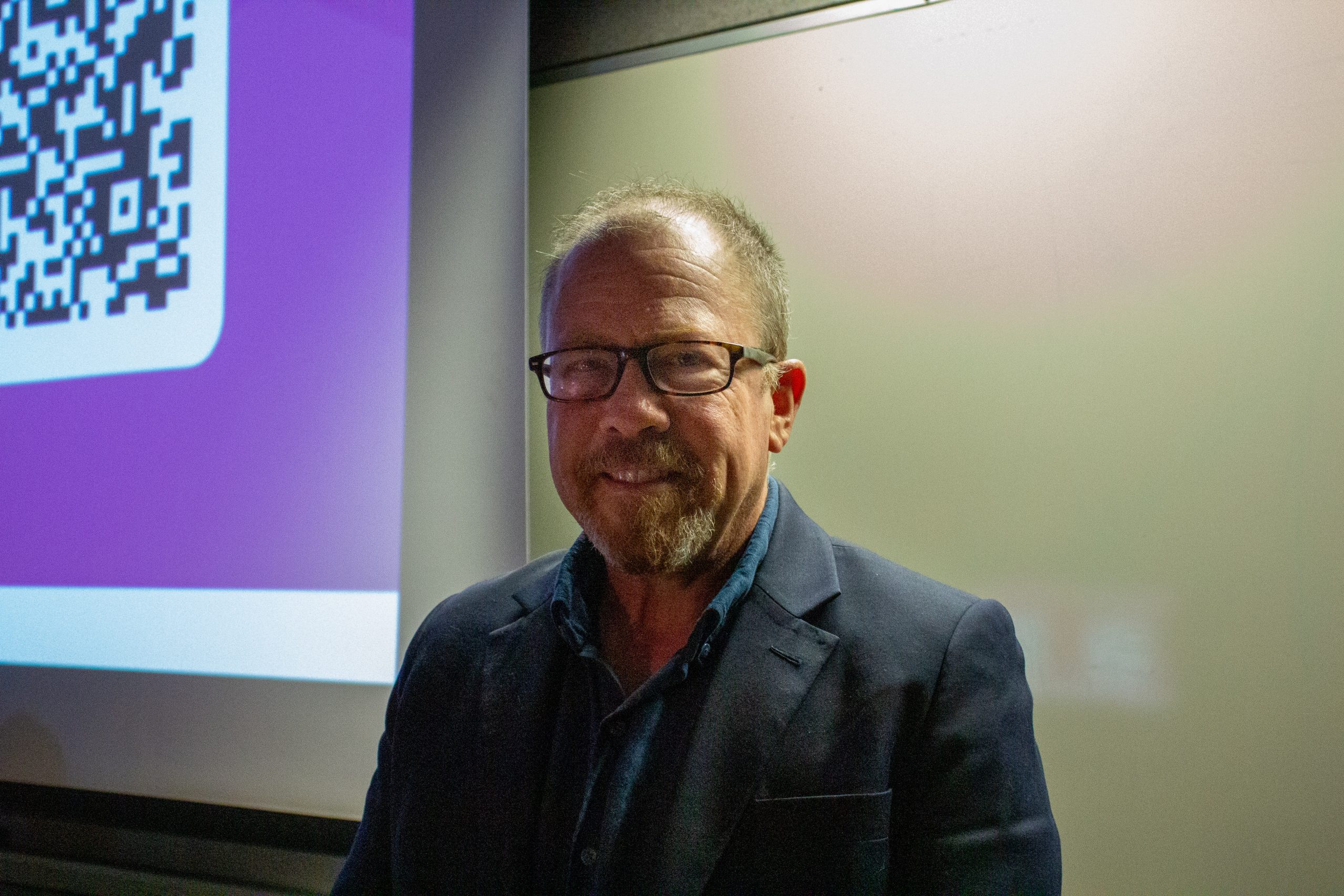On Thursday, April 27, Professor of Political Science and Women’s and Gender Studies at Brooklyn College and the City University of New York Paisley Currah spoke at the event titled “This Anti-Trans Moment” to discuss rising anti-transgender sentiment in the United States with students, staff, faculty and Appleton residents. Currah is the co-founder of the leading journal in transgender studies, TSQ: Transgender Studies Quarterly. The event was hosted by Affinity Group Coordinator Helen Boyd Kramer, and was attended by around 40 members from Lawrence and Appleton at large.
Kramer invited Currah to speak at the event after teaching from his book “Sex Is as Sex Does: Governing Transgender Identity” and introducing him to her class over Zoom as a part of her Trans Lives course. Kramer cited Currah’s ideas on gender in bureaucracy reflecting the agency’s use for it, and not what it is, as essential.
After coming to Lawrence, Currah was shown around by Kramer and he spoke highly of the community he saw. His talk focused on the importance of connections and community, and encouraged personal connection and discussion among members of Appleton.
“People [here] know each other in a face-to-face way, and that’s such a source of strength to start to mobilize from,” said Currah. “You don’t have to start off by getting to know each other, you can forge connections, build on them and make more connections, and that’s very heartening.”
Currah hopes his lecture will help younger generations realize that they have an important place in politics, and that there are problems left by his generation that they must fix. He regrets that his generation was, as he said, lulled into boring liberal reforms, and hopes that younger ones will work in more radical ways to fix these problems.
Kramer emphasized the necessity of having a longer view during these stressful times, when, though gender has never formally mattered less, a massive attack on trans people is currently underway.
“Lawrence has a significant trans population, and currently, there are more than 400 bills being proposed in more than 40 states, all of which are anti-trans and deeply transphobic,” said Kramer. “From sports bills to medical access to gendered clothing laws being reintroduced, we are in a very reactionary period. I knew that Currah – who was my trans elder when I started this work, and the first to publish a book on trans rights – would have the long view, which might be useful in a depressing, scary time.”
In alignment with this, Currah’s lecture began with topics from his 2022 book, such as the role of sex in bureaucracy and how it is defined by different agencies, and then continued to explain reasons for the increasing focus on transgender rights at a time when legal separation of gender has many fewer consequences than it did in the past.
Afterwards, he remarked over his regret that his book could not predict the massive increase in legislation of transgender issues and noted that he is currently working on a book about this. The book will attempt to find reasons for the increasing attacks on transgender people from the Republican Party, and explain why sex difference is coming back as something that they place emphasis on, he said.
After the talk, students were invited to ask personal questions. Currah used this as a chance to discuss the importance of community for students, the New York Times’ harmful coverage of transgender issues and how members of the community can cope through upcoming culture wars.
“The stigmatization of trans identity is so terrible right now. We need to make sure everybody is together and taken care of,” said Currah. “Getting together and doing something absolutely just fun, that doesn’t involve canvassing or political work once in a while [is important]. Trans joy is this new idea of celebrating being trans, and not just having to fight this terrible political battle.”


